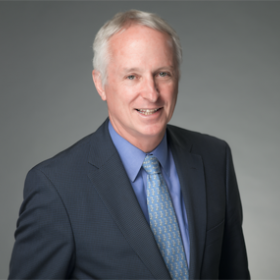
Trust-building Continues from New York to Beijing
At its October Gala, in New York, the EastWest Institute honored its accomplished past; in November, in Beijing, it will continue its solid achievements.
At the Gala, former Finnish president and longtime EWI stalwart Martti Ahtisaari was awarded the John Edwin Mroz award in recognition of his extraordinary contributions to peace in the last decades. From Namibia to Kosovo, in his national and multinational roles, Ahtisaari put into practice that which EWI represents: the power to build trust among individuals and institutions whose interests may not align; the ability to forecast solutions long before others see them; and the good will and patience to negotiate peaceful outcomes, in the tradition of the very best leaders in the world whose empathy and understanding allows them to see problems the way others might.
Finnish UN Permanent Representative Kai Sauer and EWI Board Chair Ross Perot Jr proudly presented the award, established in honor of EWI’s founder and longtime president, as a tribute to a man whose illustrious career has in many ways paralleled our own.
Inspired by the achievements of President Ahtisaari, the EWI team will continue to build its strong ties in China in the coming weeks. It’s part of EWI’s strategic commitment to high-level understanding and trust-building between Chinese and American leaders, a commitment that has grown into a robust and active set of meetings in recent years.
In November, I’ll lead the U.S. delegation to the annual U.S.-China High-Level Security Dialogue in Beijing, where we will meet with counterparts from the Chinese Communist Party, the Chinese government, and major Chinese think tanks and media organizations. The experts on both sides will build on the trust and experience developed in recent years to discuss many of the issues that were on the agenda when China’s President Xi Jinping visited the United States this September and met both with President Obama and other world leaders at the United Nations General Assembly.
From bilateral issues, to regional security challenges, to high-tech developments, this team will help deepen our understanding of the key issues both sides agree need to be addressed in order to head off conflicts before they start and anticipate new areas where our efforts to build trust can pay off in promoting stability in the years to come.
EWI will then return to Beijing in December with a team of former senior U.S. generals and military experts for the next iteration of the Sanya Initiative, in which we tackle Chinese and American mil-mil topics. In the ranks of our distinguished delegation will be three former members of the United States Joint Chiefs of Staff. Sanya is another of the processes in which EWI fosters deeper trust among those who continue to wield considerable influence with incumbent top defense officials in both countries.
It’s wonderful to be looking back at our achievements of the past; and it’s even more wonderful to see how that legacy is contributing to peace and stability in arguably the single most important bilateral relationship in the world today, that of China and America. There’s plenty more that EWI is planning before the end of the year, but these upcoming meetings in China, and the ongoing U.S.-China trust-building efforts they represent, show our deep commitment to building on the trust we help create and resolving outstanding issues before those issues become crises or conflicts.

